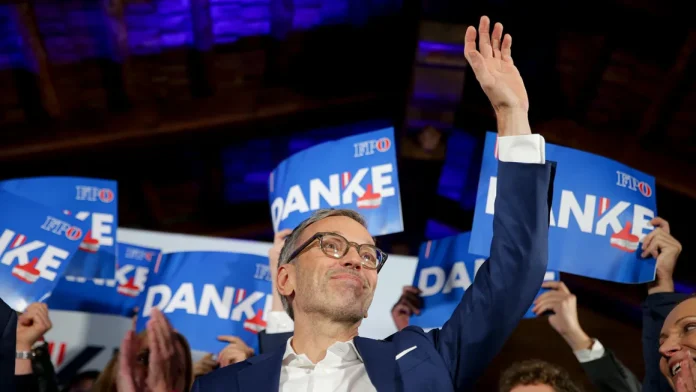The Austrian Freedom Party (FPÖ) won nearly 29 per cent of the vote after all ballots were counted, securing its first victory in parliamentary elections. Despite the victory, it remains unclear whether the party will lead the next government.
The Austrian People’s Party (ÖVP), of which incumbent Austrian Federal Chancellor Karl Nehammer is a member, came second with 26.5 per cent. This party thus lost the support of 11 per cent of voters compared to the results of the last parliamentary elections held in Austria in 2019. The FPÖ, on the other hand, improved its 2019 result by 13 percentage points.
The Social Democratic Party of Austria (SPÖ) managed to get 21.1 per cent of voters on its side (0.1 per cent decrease in support). With this result, the SPÖ will be the third largest political force in the Austrian National Council (lower house of parliament).
The New Austria and Liberal Forum party (NEOS) gained 9 per cent of the vote in the election, improving its previous result by 0.9 per cent. Meanwhile, the Greens, who are currently the ANP’s ruling coalition partners, received 8 per cent of the vote, losing the support of 5.9 per cent of voters.
Small parties such as the Communist Party of Austria and the Beer Party gained significantly less than the 4 per cent of votes needed to gain representation in the Austrian parliament. It is indicated that most of the postal ballots were counted. The remaining votes are expected to be counted by October 3.
The future of parliament is in doubt
Even though the Freedom Party won the Austrian parliamentary elections, they will hardly be able to form a government. Karl Nehammer has repeatedly rejected not only the possibility of entering into a coalition with the FPÖ, but also the very idea of negotiating such a coalition. For his part, Austrian President Alexander Van der Bellen, who represents the Greens, said he would not appoint FPÖ chairman Herbert Kickl as the country’s chancellor.
Kickl said on ORF TV:
I am ready to negotiate with everyone, the main thing is how the federal president will behave.
The Election Commission reported a turnout of 78 per cent, indicating a high turnout in this election. The position of the Freedom Party and the uncertainty over the formation of a government have put Austria’s political future at a crossroads.
